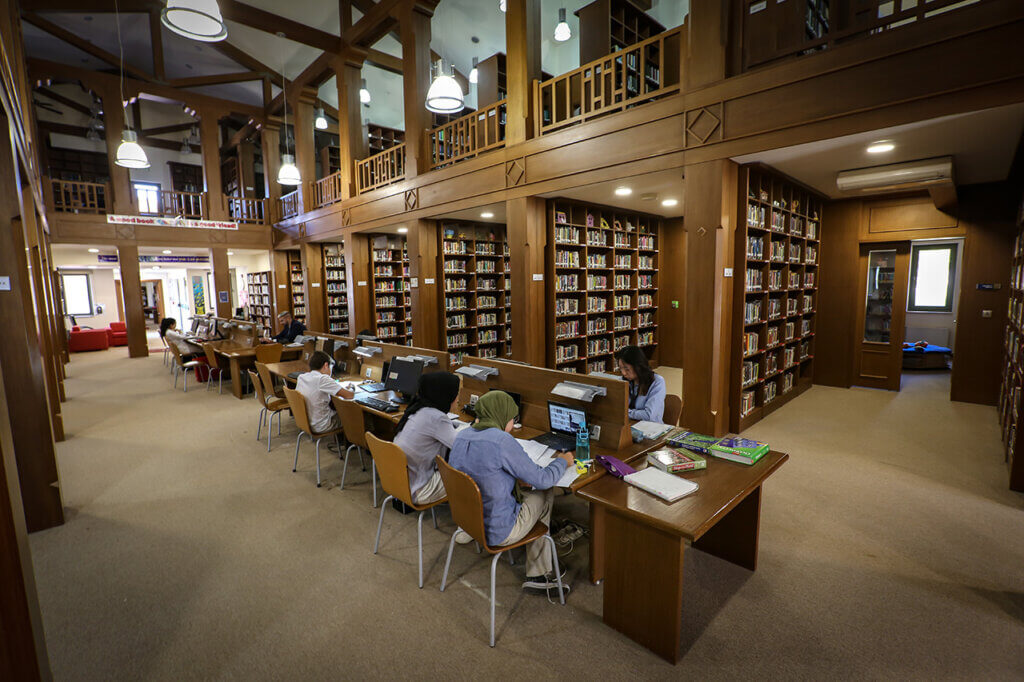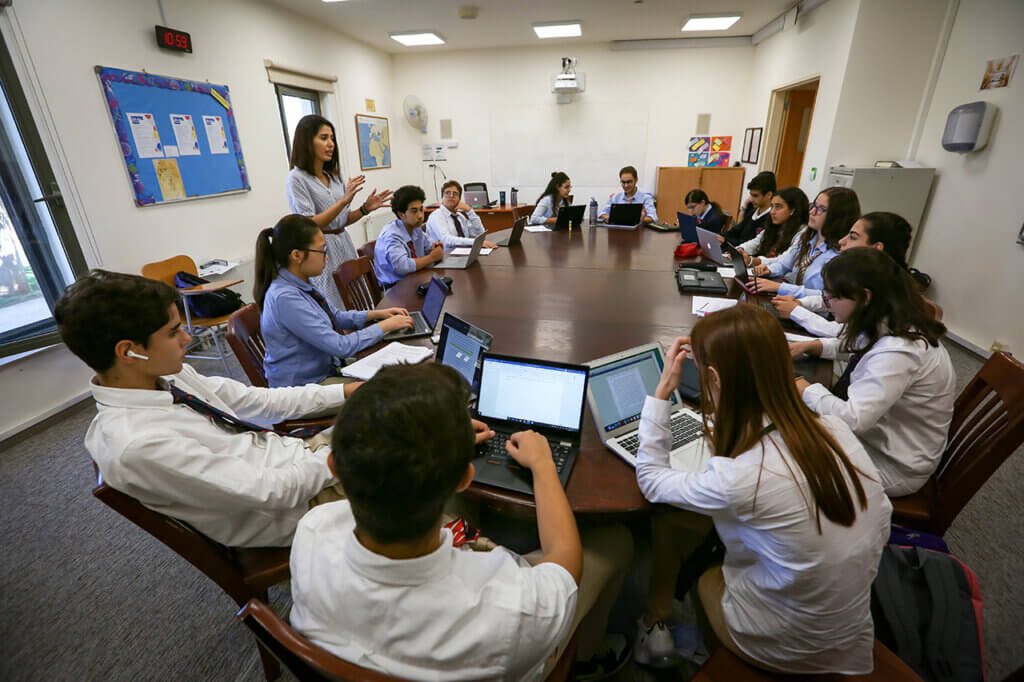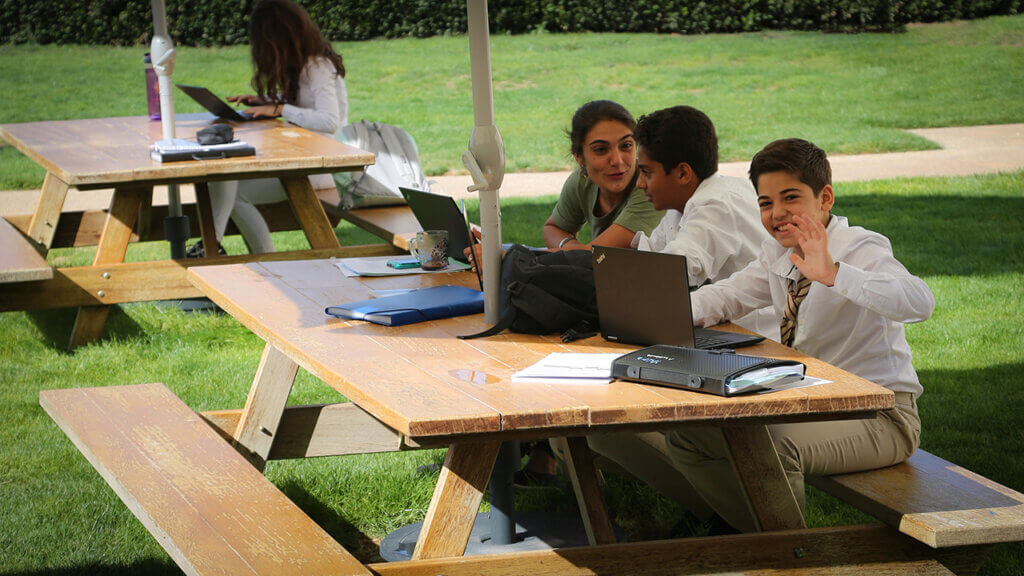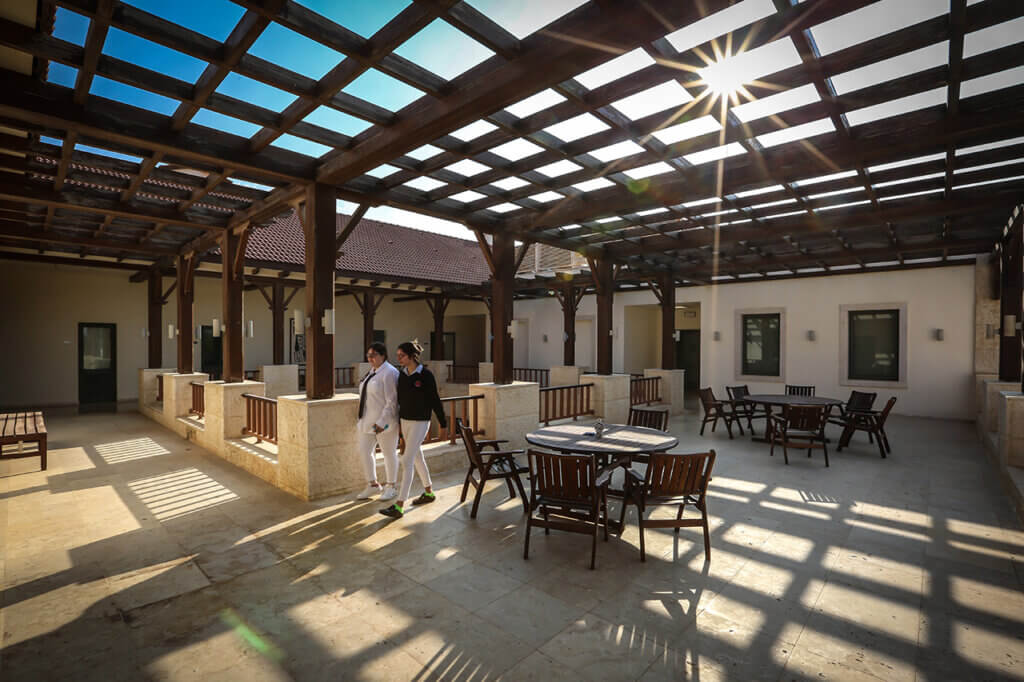Boarding school now? For students excelling here at home? Yes. In Jordan, King’s Academy offers a path to achieve even more, with added support and safety. Even if you’ve never considered boarding school an option, you’ll want to explore the possibility at our upcoming November 11 webinar with King’s Academy.
King’s Academy is no ordinary boarding school. We first wrote about it last fall, discussing its royal heritage (founded in 2007 by His Majesty King Abdullah II bin Al Hussein of Jordan), world-class curriculum, generous financial aid, funny videos, and more. (You can read the full post here in the Newton Knows archives.)
This month we got in touch with King’s again to learn how the school has held up against the challenges of 2020. We spoke with Imad Zahr, Dean of Admissions and Financial Aid, and Dima Hijazi, Associate Dean of Admissions and International Student Recruitment.
Creating a Safe Zone

One major topic was, not surprisingly, COVID-19. “Every school, every community has been really affected by this pandemic,” commented Zahr. He reports that King’s Academy has taken smart if “extreme” steps to keep its students safe.
Jordan initially contained the virus successfully for many months, among world leaders in prevention. Therefore King’s “felt comfortable opening with physical/social distancing protocols in place” back in August, according to Zahr. Students and faculty, “anyone who was going to enter our campus,” took a PCR test for COVID first and there were no cases on campus.
About two months ago a “big wave of COVID-19 infections” hit Jordan. While King’s still did not have cases, administrators realized it was time to take stronger preventive measures.
“We decided to quickly move into our most drastic type of action by creating a safe zone,” recalls Zahr. The campus was closed to travel in or out. Day students were asked to move to campus along with any staff not already living there (most King’s Academy faculty live on campus even in ordinary times to build closer ties with students).
“We again did another round of testing,” Zahr continues. Students lived in small cohort groups doing online learning for two weeks, then “tested again, and tested again.” “Now we are beyond that,” says Zahr. Students are going to class in person, within a King’s Academy “bubble.” (Strictly speaking, the bubble is a “Green Zone” as allowances are made for emergencies, and for travel beyond campus in certain circumstances and zones so long as there is no direct interaction with outsiders.)
Fortunately, King’s has a large campus with 34 buildings spread over 144 acres (0.6 square kilometers), so their bubble has proved a comfortable fit even with the expanded boarding population. “We [took advantage of our boarding capability], we preserved the safety of the community, and now our classes are the only classes in all of Jordan that are in person,” says Zahr. (For all other schools the Jordanian government has mandated online instruction.)
Breaking Bubbles

Even living in a quarantine bubble, you can count on expanding your world at King’s Academy. Only about 65 percent of students are Jordanian (“or Jordanian-and-other-citizenship” as Zahr further specifies) with others not only from the Gulf and surrounding countries but from as far away as China and Korea with a “sizeable student body population” from the United States. Teachers too are actively recruited internationally, with the majority coming from the United States to teach King’s Advanced Placement course work.
It’s not just international diversity though. King’s Academy gets its students out of their “social bubble,” Hijazi explains, where they have had contact only with others from families very similar to their own, King’s strives for diversity in areas such as financial background. Students at King’s mix with other achievers from across the economic spectrum and “get to know how hard those people work, they get to understand the world as it is — and get out of the bubble.”
“What also makes King’s unique is our commitment to diversity and our commitment to access and equity through our financial aid program,” says Zahr. “There’s no other school that has the commitment we have. Fifty percent of students receive need-based aid.”
King’s Academy actively seeks out promising students with financial need: within Jordan’s public schools, throughout the West Bank and Gaza, in Lebanon’s refugee camps, and so on. In other situations too, the recruiters work to understand individual situations. “If the student is solid, is strong, we try to find ways to facilitate, to make it easy for them to come to King’s,” says Hijazi. “We look at what their worries are and address them, make it easier.”
Quality and Connection

Hijazi also points out that attending King’s Academy is “a privilege, added value.”
“Some families come to King’s because they know King’s will get their kids somewhere. It might be the Ivy League, this university, that university. They know that King’s will open doors. Providing the kids work hard, of course, they know we are a good gateway and we prepare them well for such colleges and universities,” she says.
“Our faculty do amazing work, are really experienced; look at their profiles,” says Zahr. He describes them as “the best of the best.”
“We provide world-class education,” continues Zahr. At the same time there’s continued connection to regional “roots,” with study in Arabic required every year. Still having Friday as a weekend day provides practicing Muslims convenience in attending religious services (still available at the school’s on-campus Spiritual Center), and the similar time zone allows easier continuing communication with those at home.

“If you’re wondering what institution to look to for stability during this really uncertain time, King’s Academy is that place, and it’s only an hour from Cairo,” Zahr concludes.
